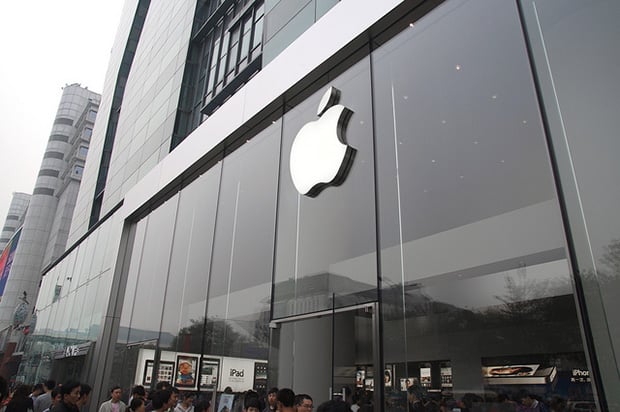Apple Escalates Qualcomm Licensing War With $145 Million Lawsuit In China
Apple and Qualcomm are quibbling the way Apple and Samsung used to, and just as before there is big money at stake, as much as a $1 billion. That is the amount Apple earlier this week accused Qualcomm of withholding in rebates related to license agreements, and the Cupertino outfit is suing semiconductor giant in China for 1 billion yuan (around $145.3 million) in damages.
This is an interesting dispute that goes beyond the typical patent infringement claims that big corporations typically argue over. In this case, the Federal Trade Commission (FTC) recently slapped Qualcomm with a lawsuit alleging anticompetitive practices. The FTC accused Qualcomm of leveraging its position to limit Apple's options.

"Qualcomm recognized that any competitor that won Apple’s business would become stronger, and used exclusivity to prevent Apple from working with and improving the effectiveness of Qualcomm’s competitors," the FTC said.
Apple then filed its own lawsuit accusing Qualcomm of what amounts to extortion by "charging royalties for technologies they have nothing to do with." On top of that, Apple accused Qualcomm of punishing the firm for cooperating with authorities in other countries that have filed antitrust litigation against the firm.
"Despite being just one of over a dozen companies who contributed to basic cellular standards, Qualcomm insists on charging Apple at least five times more in payments than all the other cellular patent licensors we have agreements with combined. To protect this business scheme Qualcomm has taken increasingly radical steps, most recently withholding nearly $1 billion in payments from Apple as retaliation for responding truthfully to law enforcement agencies investigating them," Aple said in a statement.

The suit in China is a separate one in which Apple further accuses Qualcomm of not living up to its promise of licensing standard essential patents broadly and inexpensively. Qualcomm supplies both Apple and Samsung with modem chips that allow their smartphones to connect to wireless networks. The two companies combined accounted for 40 percent of Qualcomm's $23.5 billion in revenue last year.
"These filings by Apple’s Chinese subsidiary are just part of Apple’s efforts to find ways to pay less for Qualcomm's technology. Apple was offered terms consistent with terms accepted by more than one hundred other Chinese companies and refused to even consider them," Don Rosenberg, executive vice president and general counsel of Qualcomm, said in a statement.
Qualcomm has faced considerable scrutiny from antitrust authorities as of late. The company was fined 1.03 trillion won ($854 million) in South Korea last December for unfair practices in patent licensing, and in February 2015 it was hit with a $975 million penalty in China following a 14-month investigation.

